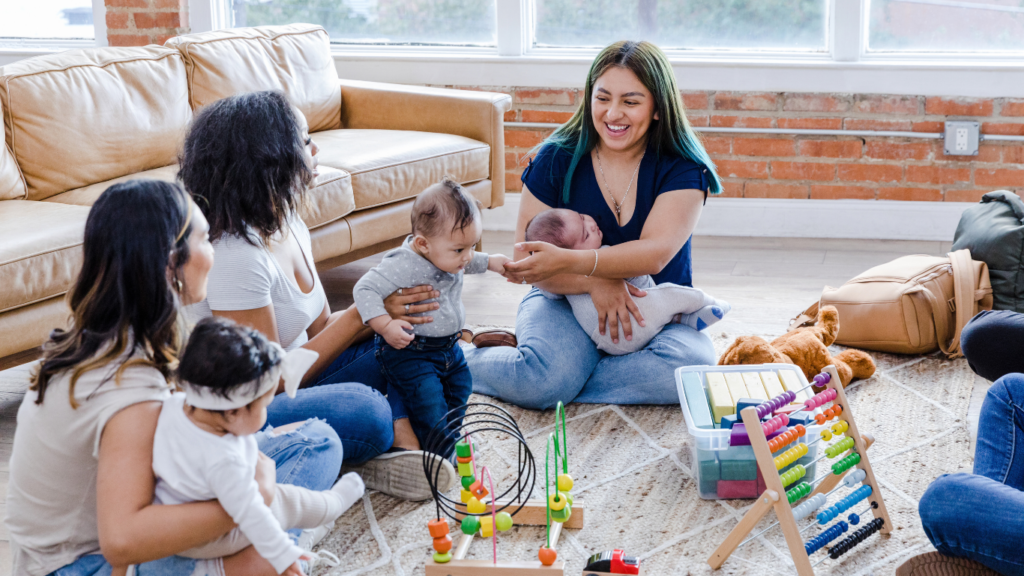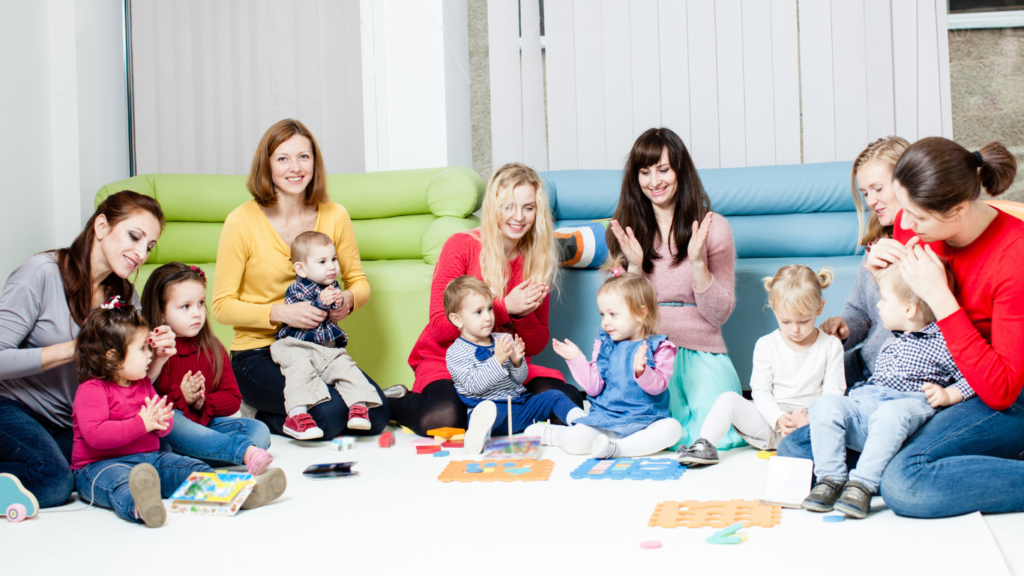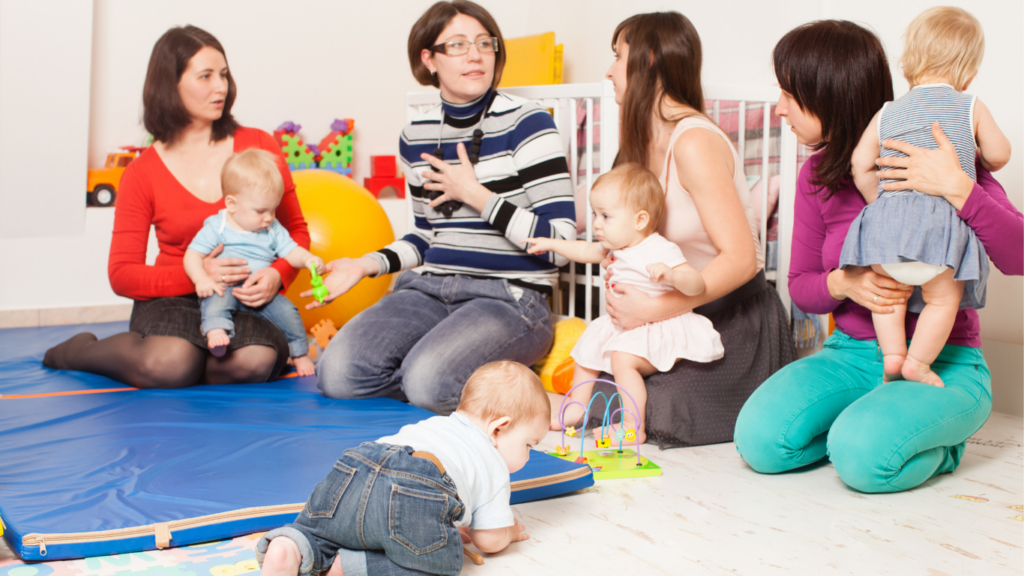Being a mom is one of the most rewarding yet challenging journeys, and it’s not something anyone should have to navigate alone. That’s why mom communities have become such a vital space for connection and support. What makes these groups truly special isn’t just shared experiences—it’s the empathy that flows between members, creating a safe haven where every voice feels heard and understood.
Understanding Mom Communities
Mom communities offer a unique space centered around shared motherhood experiences. These groups thrive on connection, empathy, and mutual support, providing an anchor for moms navigating various stages of parenting.
What Defines a Mom Community?
A mom community is a collective of individuals united by the shared identity of motherhood. These communities exist in many forms, including local meetups, social media groups, and forums. Members often seek advice, share parenting tips, or offer emotional support. Empathy plays a defining role by fostering a sense of understanding and acceptance. For instance, moms discussing topics like postpartum challenges or balancing work and family create bonds rooted in shared realities.
These communities also adapt to specific niches, such as:
- single moms
- stay-at-home moms
- parents of children with disabilities
allowing members to connect over more specialized circumstances. By addressing diverse needs, mom communities ensure every mother finds a space where her voice is valued.
The Importance of Connection Among Moms
Connection within mom communities mitigates feelings of isolation many moms experience. Engaging with peers who understand similar struggles strengthens emotional resilience. For example, candid conversations about sleep deprivation or managing toddler tantrums often provide relief and perspective.
These connections also encourage resource sharing, such as recommendations for childcare, meal planning tips, or self-care routines. The mutual exchange of solutions fosters growth for individuals and the group. Empathy deepens these interactions, reminding each mom she’s supported even during her most challenging moments.
The Concept of Empathy
Empathy forms the foundation of meaningful interactions within mom communities. It allows members to connect on a deeper level, fostering mutual understanding and emotional support.
What Is Empathy?
Empathy is the ability to understand and share another person’s feelings and experiences. This involves recognizing emotions in others and responding compassionately. In mom communities, empathy bridges individual needs and shared challenges, creating an inclusive environment. It helps mothers feel seen and heard, especially when discussing sensitive topics or seeking advice.
Types of Empathy and Their Relevance
Empathy manifests in three primary types: cognitive, emotional, and compassionate. Each type serves a unique purpose within mom communities.
- Cognitive empathy focuses on understanding another’s perspective. It enables moms to provide practical advice based on specific struggles, like sleep training or work-life balance.
- Emotional empathy involves sharing another’s feelings. This is critical when mothers express struggles like postpartum depression, as it reassures them that their emotions are valid.
- Compassionate empathy combines understanding and action. This encourages moms to offer tangible support, such as babysitting help or meal preparation for a parent in need.
Each type enhances trust and strengthens bonds, making these communities vital to emotional well-being.
The Role Of Empathy In Mom Communities

Empathy is the foundation of meaningful interactions in mom communities. It nurtures understanding, fosters trust, and builds deep connections that support mothers both emotionally and practically.
How Empathy Shapes Relationships Among Moms
Empathy builds trust by promoting understanding and reducing judgment. When one mom listens without dismissing another’s emotions, trust deepens. Shared struggles, like sleep deprivation or work-life balance, naturally bring mothers together, but empathy solidifies these bonds. It allows members to see different perspectives, reducing misunderstandings and fostering a sense of solidarity. For instance, moms from diverse cultural or parenting backgrounds often find common ground through empathetic exchanges.
Empathy as a Tool for Emotional Support
Empathy validates feelings by reassuring mothers they’re not alone in their challenges. Emotional empathy lets moms feel seen and understood during vulnerable moments, such as after a difficult day or while facing postpartum anxiety. Compassionate empathy leads to actionable help, like offering to watch someone’s child, sharing uplifting messages, or providing resources for professional mental health support. These acts of kindness can significantly alleviate emotional burdens and foster a culture of mutual care.
Real-Life Examples of Empathy in Action
In online communities, moms often respond with heartfelt words of encouragement when others share struggles, reminding them of their resilience. For instance, a mother navigating breastfeeding difficulties might receive practical tips, links to lactation consultants, and reassurance of her effort. During local meetups, offering a listening ear while another mom shares her day’s challenges exemplifies empathy. In another case, arranging meal deliveries for a mother recovering from childbirth combines emotional and compassionate empathy, creating a strong support network.
Benefits of Empathy in Mom Communities
Empathy enhances the dynamics of mom communities by fostering meaningful connections and creating a culture of understanding and support. It strengthens social ties, reduces loneliness, and encourages collaborative growth among members.
Strengthening Social Bonds
Empathy deepens relationships within mom communities by encouraging genuine understanding and trust. When moms share challenges, others respond with empathy by validating their emotions or recalling a similar experience. This validation builds mutual respect and creates bonds that extend beyond the community space. For example, a mom dealing with sleep training struggles can connect with others who empathize and provide encouragement or practical suggestions.
Reducing Feelings of Isolation
Empathy combats isolation by reminding moms that their experiences are both understood and shared. When a mom expresses feelings of overwhelm, empathetic responses from the community assure her that she’s not alone. For instance, a mom navigating postpartum depression may find relief in hearing others share their own recovery journeys, creating a supportive, judgment-free environment.
Promoting Shared Learning and Growth
Empathy fosters collaborative learning by empowering moms to exchange knowledge and experiences. When one mom empathizes with another’s parenting frustration, it often leads to helpful insights or solutions. For example, a mother juggling work and family may gain fresh perspectives on time management or self-care strategies through empathetic, constructive discussions in the group. This sharing cultivates collective growth and strengthens the community.


 Founder & Editorial Director
Founder & Editorial Director
